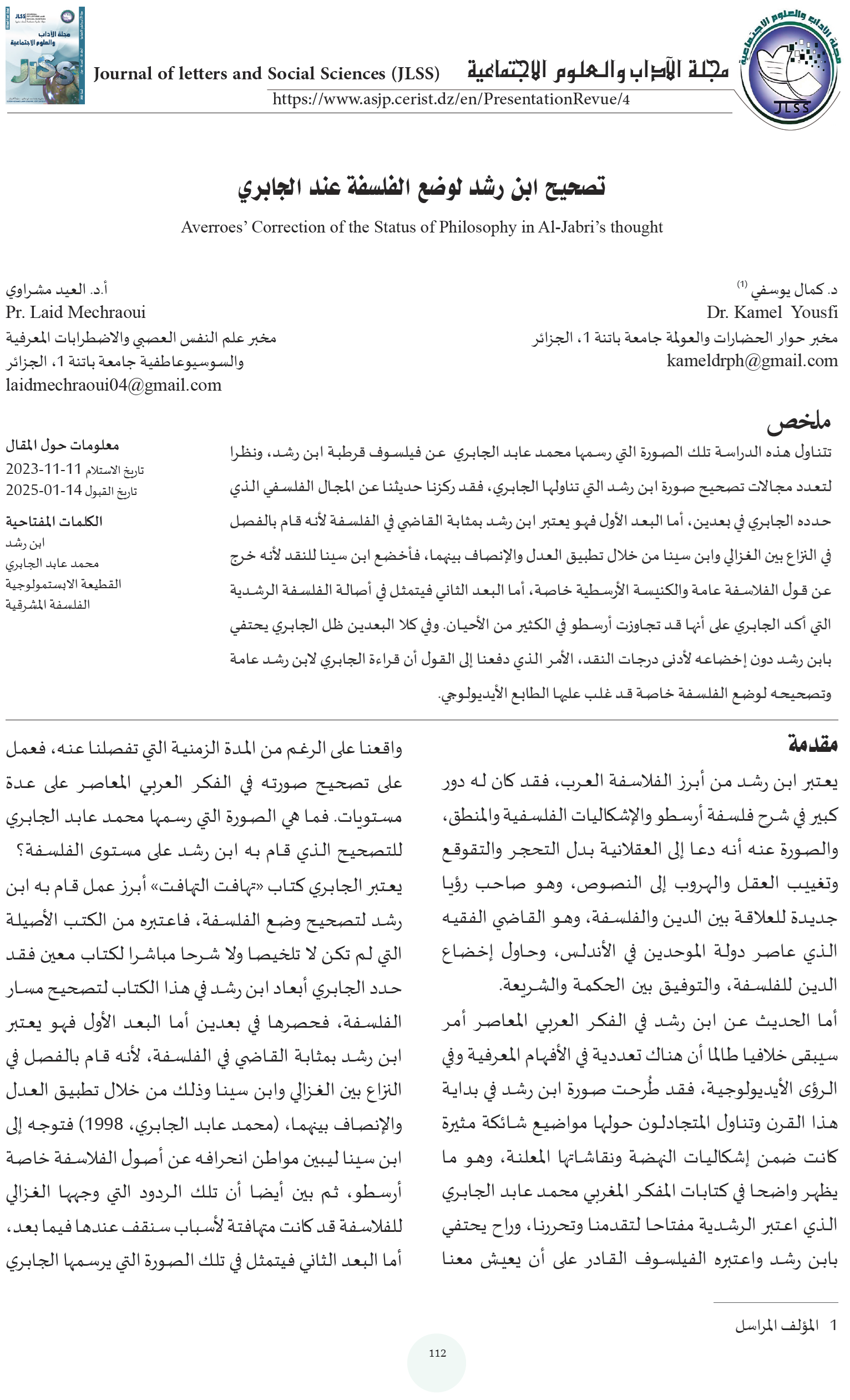تصحيح ابن رشد لوضع الفلسفة عند الجابري
معلومات حول المقال: تاريخ الاستلام 2023-11-11 ----- تاريخ القبول 14-01-2025
الكلمات المفتاحية:
English
Ibn Rushd، Muhammad Abid Al-Jabri، epistemological discontinuity، eastern philosophyالعربية
ابن رشد، محمد عابد الجابري، القطيعة الابستمولوجية، الفلسفة المشرقيةFrançais
Ibn Rochd، Mohammed Abed Al-Jabri، rupture épistémologique، philosophie orientaleالملخص
English
العربية
Français

